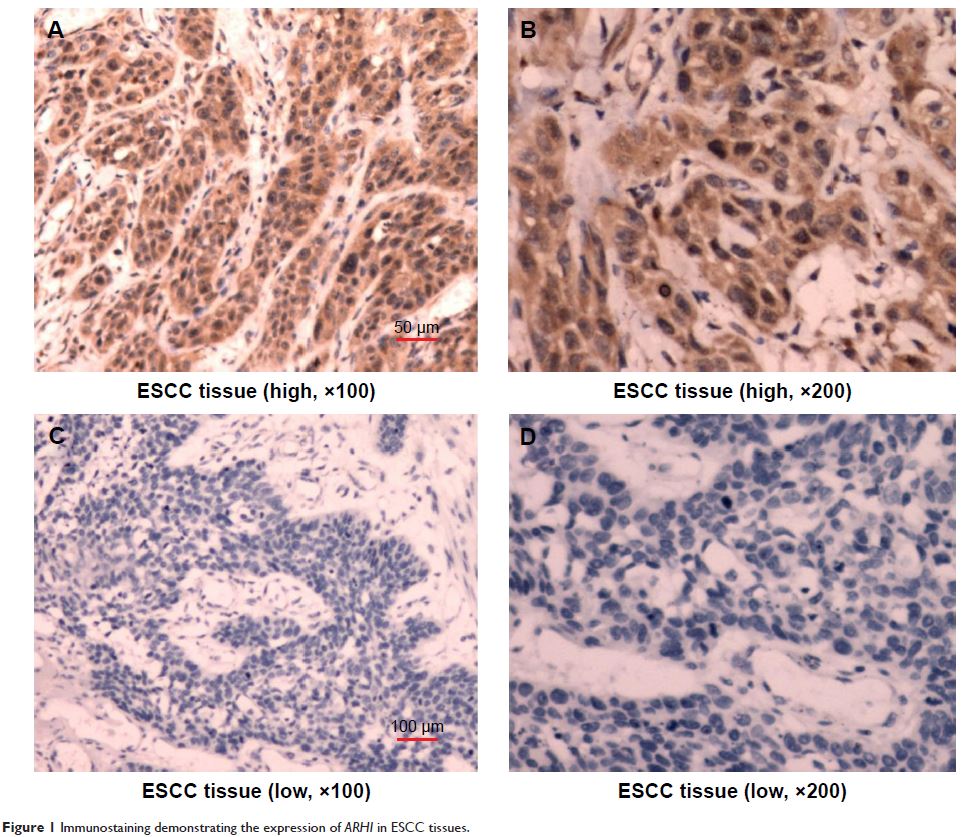109568
论文已发表
注册即可获取德孚的最新动态
IF 收录期刊
- 3.4 Breast Cancer (Dove Med Press)
- 3.2 Clin Epidemiol
- 2.6 Cancer Manag Res
- 2.9 Infect Drug Resist
- 3.7 Clin Interv Aging
- 5.1 Drug Des Dev Ther
- 3.1 Int J Chronic Obstr
- 6.6 Int J Nanomed
- 2.6 Int J Women's Health
- 2.9 Neuropsych Dis Treat
- 2.8 OncoTargets Ther
- 2.0 Patient Prefer Adher
- 2.2 Ther Clin Risk Manag
- 2.5 J Pain Res
- 3.0 Diabet Metab Synd Ob
- 3.2 Psychol Res Behav Ma
- 3.4 Nat Sci Sleep
- 1.8 Pharmgenomics Pers Med
- 2.0 Risk Manag Healthc Policy
- 4.1 J Inflamm Res
- 2.0 Int J Gen Med
- 3.4 J Hepatocell Carcinoma
- 3.0 J Asthma Allergy
- 2.2 Clin Cosmet Investig Dermatol
- 2.4 J Multidiscip Healthc

Aplysia ras homolog I (ARHI) 的表达及其对食管鳞状细胞癌细胞生物学行为的抑制作用
Authors Mao Y, Han Y, Shi W
Received 26 October 2016
Accepted for publication 21 January 2017
Published 27 February 2017 Volume 2017:10 Pages 1217—1226
DOI https://doi.org/10.2147/OTT.S125742
Checked for plagiarism Yes
Review by Single-blind
Peer reviewers approved by Dr Ru Chen
Peer reviewer comments 2
Editor who approved publication: Dr Samir Farghaly
Background: Aplysia ras
homolog I (ARHI) is a
Ras-related maternally imprinted tumor suppressor gene. Loss of ARHI expression contributes to the
malignant progression of various tumors. However, reports on the clinical
implications and functional role of ARHI expression
in esophageal squamous cell carcinoma (ESCC) are limited. This study examined
the role of ARHI in
ESCC.
Methods: In total, 81 patients diagnosed with ESCC based on
histopathological evaluations who were subjected to surgical resection were
included in the study. ARHI expression
was analyzed by immunohistochemistry and western blotting, examining the
correlations between ARHI expression
and patient clinicopathological features. The functional effects of ARHI overexpression
were examined using a Cell Counting Kit-8 assay, flow cytometry, a Transwell
assay, wound healing, and western blotting in the ECA109 cell line.
Results: ARHI was highly expressed in 27.5% (22/81) of ESCC
specimens (adjacent non-cancerous tissues, 85.2%, 69/81; P <0.05). The ARHI expression
level was significantly lower in patients with lymph node metastasis than in
patients without (P <0.05). A
Kaplan–Meier survival analysis showed that patients with low ARHI expression
had shorter survival than patients with high expression (P <0.05), and a multivariate Cox
analysis revealed that ARHI is an
independent predictor of overall survival (P =0.029). Finally,
overexpression of ARHI in ESCC
cells indicates that ARHI suppresses proliferative capacity,
invasive capacity, and cell cycle progression and may also suppress
epithelial–mesenchymal transition and induce apoptosis and autophagy.
Conclusion: ARHI may be a prognostic biomarker and a potential
therapeutic target in ESCC.
Keywords: aplysia
ras homolog I, esophageal squamous cell carcinoma, cell biological behaviour
